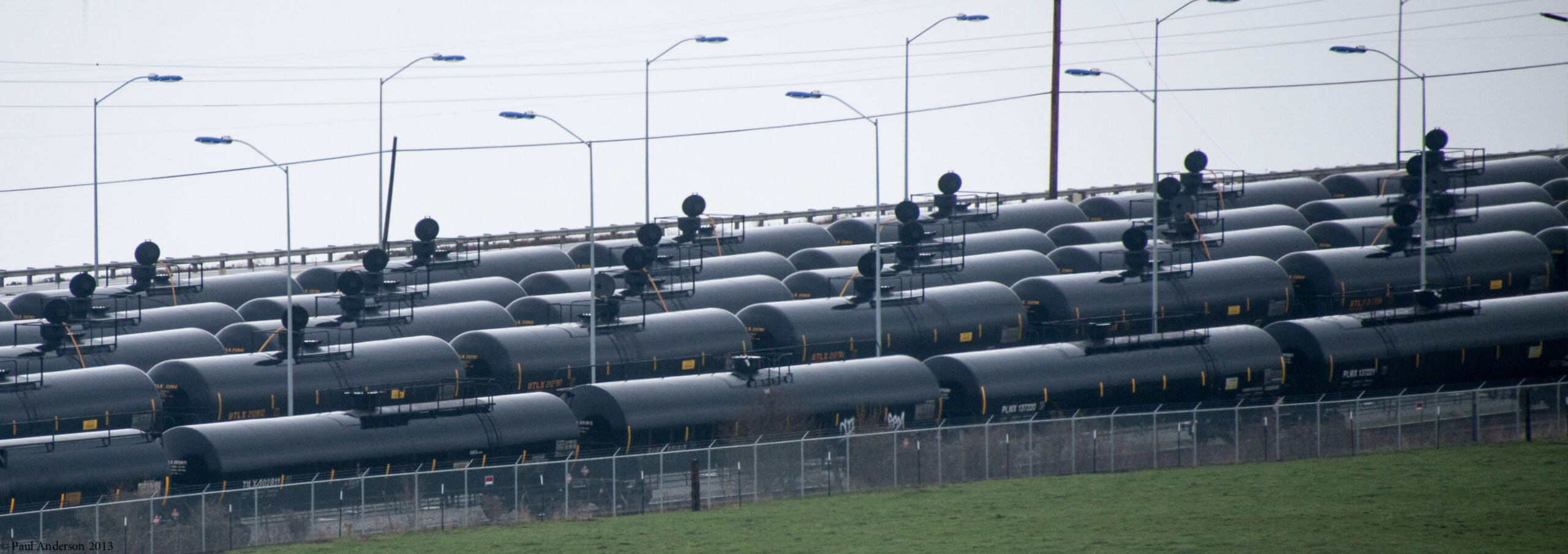The latest wave in the tsunami of the Northwest fossil fuel export schemes has washed up in the form of a propane-by-rail facility on the Columbia River. A firm currently calling itself Waterside Energy recently announced plans for a $450 million liquefied petroleum gas (LPG), or propane, export project at the Port of Longview in Washington. The proposal comes on top of a revamped plan by the company to develop an $800 million oil refining operation there to be called Riverside Refinery.
The proposal
At full capacity, the propane export and storage facility, called “Washington Energy Storage and Transfer,” would serve one train each day with 75,000 barrels of propane delivered from Canada and North Dakota. The fuel would then be pumped from rail tank cars into the terminal’s storage tanks, which could store up to 1.1 million barrels. (The site would include five spherical tanks capable of holding 23,000 barrels each, one 550,000-barrel tank, and two 222,000-barrel refrigerated tanks.) Four times a month, on average, the fuel would be piped from the refrigerated tanks onto a ship for export to Asia.
The project would be built on 75 acres of private land, but the Port has jurisdiction over the underground pipeline, rail corridor, and wharf needed for development and operations. The terminal would also require permits through Washington’s Energy Facility Site Evaluation Council (EFSEC).











